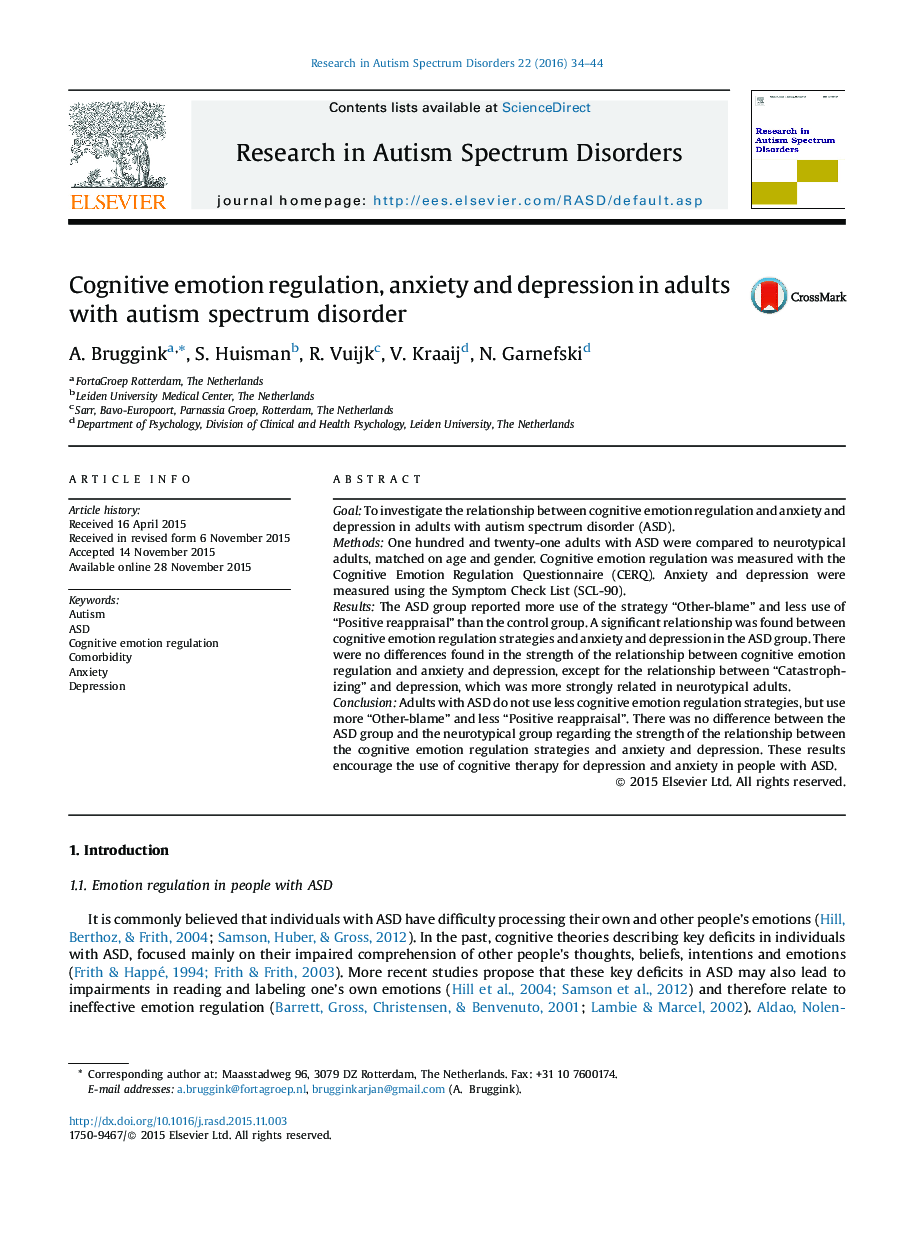| کد مقاله | کد نشریه | سال انتشار | مقاله انگلیسی | نسخه تمام متن |
|---|---|---|---|---|
| 369987 | 621832 | 2016 | 11 صفحه PDF | دانلود رایگان |
• We examined the use of specific cognitive emotion regulation strategies and their relationship with anxiety and depression in adults with ASD. The results were compared to a control group matched on age and gender.
• Adults with ASD do not use less cognitive emotion regulation strategies, but use more “Other-blame” (maladaptive) and less “Positive reappraisal” (adaptive).
• We found no difference between the ASD group and the neurotypical group regarding the strength of the relationship between the cognitive emotion regulation strategies and symptoms of anxiety and depression.
• Results might indicate that the use and effect of cognitive emotion regulation are not that deviant from neurotypical people. This could be an encouragement for making use of cognitive therapy for depression and anxiety, in the ASD population.
GoalTo investigate the relationship between cognitive emotion regulation and anxiety and depression in adults with autism spectrum disorder (ASD).MethodsOne hundred and twenty-one adults with ASD were compared to neurotypical adults, matched on age and gender. Cognitive emotion regulation was measured with the Cognitive Emotion Regulation Questionnaire (CERQ). Anxiety and depression were measured using the Symptom Check List (SCL-90).ResultsThe ASD group reported more use of the strategy “Other-blame” and less use of “Positive reappraisal” than the control group. A significant relationship was found between cognitive emotion regulation strategies and anxiety and depression in the ASD group. There were no differences found in the strength of the relationship between cognitive emotion regulation and anxiety and depression, except for the relationship between “Catastrophizing” and depression, which was more strongly related in neurotypical adults.ConclusionAdults with ASD do not use less cognitive emotion regulation strategies, but use more “Other-blame” and less “Positive reappraisal”. There was no difference between the ASD group and the neurotypical group regarding the strength of the relationship between the cognitive emotion regulation strategies and anxiety and depression. These results encourage the use of cognitive therapy for depression and anxiety in people with ASD.
Journal: Research in Autism Spectrum Disorders - Volume 22, February 2016, Pages 34–44
